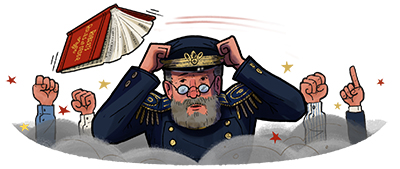
On an evening in 1876, a United States Army major named Henry Martyn Robert sat down to write Robert’s Rules of Order. He did so not from ambition but for personal safety. Earlier that evening he had conducted a church meeting which, due to what he perceived to be his poor leadership, had, according to one report of the incident, “erupted into open conflict.” Robert had decided that, all things being equal, meetings could henceforth be more productive if the participants weren’t trying to kill each other—him in particular.
As a Toastmaster, you are probably familiar with parliamentary procedure, and in the United States, Robert’s Rules rule. You have lived by them more than you know. They have become a template for organizing, managing and, given Robert’s experience at the First Baptist Church, even civilizing people who have come together as a body to make some sort of decision. Being both a military man and an engineer, Robert’s goal was precision, order, discipline and efficiency—qualities that human beings are not likely to adopt of their own free will. And at first they didn’t. Since its original publication in 1876, Robert’s manual has gone through 11 revised editions suggesting that even when individuals are told exactly what to do, their first response is, “Why should I?”
One of those revisions was a shorter version of the original, which ran to 669 pages. It was found that by the time the book was read in its entirety, the reason for the meeting—along with a goodly number of the prospective attendees—had long since passed away. There were also those who, remembering Robert’s unfortunate experience in 1876, feared that if “open conflict” were ever to erupt again, a book of 669 pages could be far too dangerous a projectile. Other important revisions occurred in the third edition (1893) when “Motion to Lie on the Table” was changed to “Motion to Lay on the Table” (maybe not important to you but these guys are precise), and the seventh edition (1970), when references to the United States Congress were removed—probably out of concern that in a book of rules meant to get something accomplished, it would be counterproductive to mention a deliberative body that accomplishes absolutely nothing. The tenth edition (2000) “recognized the existence of the internet” and the possibility of electronic meetings, and the eleventh (2011) agreed that notices could be sent by email. (I said they were precise, not fast.)
If you disagree, you can withdraw your motion without consent of the seconder, who must then sit there slightly embarrassed at having seconded … nothing.
The rules themselves strive to anticipate and prevent every possible eventuality that may erupt in conflict, open or otherwise. If you attend a meeting governed by Robert’s Rules, you will listen as the minutes of the previous meeting are read aloud, along with the treasurer’s report, both of which have been sent to you previously by mail. You will be asked if you have any objections or modifications, which you will not because you did not read them. (You know the person who takes the minutes and he just goes on and on.) If you have a motion, you must stand and be recognized by the chairperson. You cannot raise your hand. Hand-raising is seen as a lack of commitment (“If you can’t stand up for what you believe in then sit down and shut up!”). And if you stand while someone else is already standing you will be ruled “Out of Order.” That’s a bad thing. If and when you do get to make a motion it must be seconded (by the “seconder”). However, before the chairperson can state the motion all other attendees are given the opportunity to modify your motion. If you disagree, you can withdraw your motion without consent of the seconder, who must then sit there slightly embarrassed at having seconded … nothing.
You can also invoke a Point of Privilege if you’d like to complain about, say, the temperature in the room … or a Point of Information to ask the speaker a question … or a Point of Order if you believe someone has broken the rules … or a Point of Point where you can ask, “What’s the point of all this?” (I made that last one up.)
Space forbids me from going on but you get the, uh, point. A Robert’s meeting is a place where the Rules rule. And with that I move to adjourn this meeting. Anyone second the motion?
John Cadley is a former advertising copywriter, freelance writer, and musician living in Fayetteville, New York. Learn more at www.cadleys.com.



 Previous
Previous
 Previous Article
Previous Article